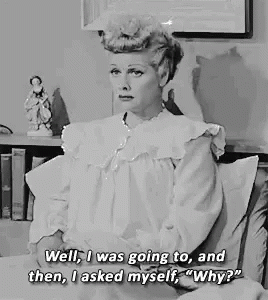The Power of Small Steps: Why Modest Goals Lead to Massive Writing Success

A practical guide to setting achievable writing goals that transform your creative journey
Have you ever set an ambitious writing goal only to abandon it weeks or even days later? You're not alone.
As a writing coach and author, I've witnessed countless writers fall into the trap of overambitious goals.
And - even though I write every day, I also fall into the trap of setting overly ambitious goals.
The truth about successful writing isn't in grand declarations – it's in small, consistent actions.
The Hidden Trap of Ambitious Goals
Picture this: You're excited about your writing project and declare, "I'll write 5,000 words every day!"
The enthusiasm lasts for maybe two days.
Then reality hits.

Life gets busy. Creative energy fluctuates. And suddenly, that ambitious goal feels like a mountain too steep to climb.
I've been there. We all have.
The Psychology Behind Goal Setting
Our brains are wired to get excited about big goals.
But this same excitement can become our biggest obstacle.
When we set unrealistic targets, we're actually setting ourselves up for failure.
Understanding SMART Goals
Enter the SMART framework – your new best friend in the writing journey.
This isn't just another acronym; it's a proven system that transforms how we approach our writing goals.
Let's break it down:
Specific: The Power of Clarity
Vague goals create vague results.
Instead of "write more," try "write 500 words each weekday morning."
I set a standing appointment on my calendar every day for reading and for writing. I set my reading time to be when I have my first cup of coffee in the morning. For the writing time, it is a flexible floating block on my calendar.
This clarity eliminates decision fatigue and creates a clear path forward.
Measurable: Track Your Progress
Numbers don't lie.
Tracking your progress provides concrete evidence of your journey.
It transforms abstract goals into tangible achievements.
Achievable: The Sweet Spot
Here's a revolutionary idea: Set goals so easy they feel like cheating.
If you can write 1,000 words in a sprint, set your daily goal at 500.
This builds confidence and maintains momentum.
Relevant: Align with Your Vision
Every writing session should connect to your larger goals.
Working on a novel? Focus on manuscript-related writing.
This alignment maintains motivation and purpose.
Time-bound: The Power of Deadlines
Deadlines create urgency.
They transform dreams into action plans.
They make the abstract concrete.
The Mathematics of Small Wins
Let's talk numbers:
250 words daily = 91,250 words yearly
That's a full-length novel, written in manageable chunks.

Creating Sustainable Habits
Small goals create sustainable habits.
Sustainable habits lead to finished books.
It's simple mathematics combined with human psychology.
Implementation Strategy
1. Start tomorrow with a modest goal
2. Track your progress daily
3. Celebrate small wins
4. Adjust as needed
5. Stay consistent
The Compound Effect
Small actions compound.
Today's 250 words might seem insignificant.
But in a year, they become a novel.
Overcoming Obstacles
Some days will be harder than others.
That's why small goals work – they're achievable even on your worst days.
They build resilience through consistency.
The Path Forward
Success in writing isn't about massive leaps.
It's about small steps taken consistently.
Your journey begins with a single, achievable goal.
Your Action Plan
1. Set your minimum daily word count
2. Create a simple tracking system
3. Commit to 30 days of consistent action
4. Review and adjust as needed
Conclusion
The secret to writing success isn't in grandiose goals.
It's in the power of small, consistent actions.
What small step will you take today?
Share your experiences with goal-setting in the comments below. What's your ideal daily word count? Let's support each other in this journey of sustainable writing success.
Remember: The smallest steps often lead to the biggest breakthroughs.

Member discussion